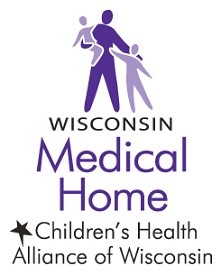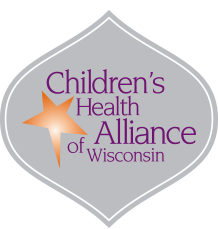Early recognition, detection and intervention of mental health concerns and developmental delays in young children are key to a healthy future. Children receiving care within a medical home have improved health

Teresa Wiersma
outcomes, and families are more satisfied with their child’s care. For primary care providers, recognizing mental health concerns and developmental delays among their pediatric patients can present challenges. By participating in trainings provided by the Wisconsin Medical Home Initiative and enrolling in the Wisconsin Child Psychology Consultation Program (CPCP), the process can be made a little easier. The Wisconsin Medical Home Initiative and CPCP have partnered in the delivery of trainings since 2016.
Teresa Wiersma, a Family Medicine Nurse Practitioner at Randolph Community Clinic in Dodge County in southern Wisconsin (pictured), participated in the Medical Home trainings and enrolled in CPCP to equip her clinic with additional resources. The teamed-up programs, according to Wiersma, have made a positive difference for her, her colleagues, patients, and their families.
“What’s really nice for us, being a rural clinic, is that we always have somebody to call if we have questions,” she said. “I have nothing but wonderful things to say about these programs. I have tools on pediatric anxiety and ADHD, stress in teens, pediatric sleep and more. It’s all really nice to have.”
About Wisconsin Medical Home

The Wisconsin Medical Home Initiative promotes medical home concepts among primary care clinicians, public health departments, early childhood professionals, and families throughout Wisconsin. The program strives to empower professionals with valuable developmental and mental health screenings for all children, especially those with special health care needs. Trainings and technical assistance, driven by policy statements from the American Academy of Pediatrics (AAP), are available virtually. Local developmental and mental health resources are shared in the trainings. Medical providers who complete the free training may earn 1 hour of continuing education credit.
It is recommended that the developmental screenings are administered during well-child visits through the first 5 years of a child’s life. The validated parent questionnaire can be easily scored by the medical provider. This type of assessment can help identify delays in development, such as speech or gross motor skills, early on.
“The developmental screenings have been a really great resource for us and the clinic is really grateful to have it,” Wiersma said. “Parents appreciate the screenings, too, because we can dig a little deeper instead of doing just the basic questions.”
Children’s mental health is a topic that needs to be addressed and can be difficult to approach. The medical home is a safe place where parents and physicians partner to promote a child’s health and development based on the family’s priorities.
About Wisconsin Child Psychiatry Consultation Program (CPCP)

The Wisconsin Child Psychiatry Consultation Program (CPCP) is funded by the Department of Health Services (DHS) and a federal HRSA grant, and administered by the Medical College of Wisconsin. The goal of the CPCP is to improve mental health care for children in the state of Wisconsin. Through education, consultation support, and resource coordination, the CPCP helps primary care providers offer timely, quality care to children with mild-to-moderate mental and behavioral health concerns.
The CPCP’s child psychiatrists and pediatric psychologist offer consultative support regarding diagnosis and management options for children and adolescents with mental health concerns. In addition, enrolled pediatric primary care providers have access to education and training opportunities. The CPCP also offers resource and referral support for providers based on their region.
As the national shortage of mental health care providers grows, primary care providers have taken on an increasing responsibility in diagnosing and managing more mental health cases, especially in rural communities. For a medical provider like Wiersma who practices in rural Wisconsin, the ability to contact the CPCP team by phone or email with any child and adolescent mental and behavioral health questions, is immensely valuable. It makes a significant difference when it comes to helping pediatric patients in a timely manner.
Mental health care continues to be a challenging topic, but thanks to the support and guidance from the CPCP team, Wiersma has resources to help her treat children and adolescents struggling with mental health issues. “A lot of parents are afraid to hear a mental health diagnosis, but I approach it in a way where I let them know we are all made differently and I am here to help,” Wiersma said. “Some children have diabetes, some may have high blood pressure and some may have anxiety, and that’s ok.”
“I tell parents that not one of us are perfect and that it’s ok. Enrolling in the CPCP and doing the training modules has given me the confidence I needed to address these topics and help children.”
For more information regarding Wisconsin Medical Home Initiative, visit their website or contact Naomi Kowald. For information regarding the CPCP, visit their website or contact Sara Herr.


